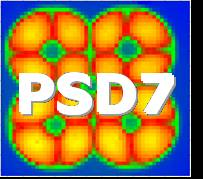Speaker
Dr
Ignacio Redondo-Fernandez
(Department of Radiotherapy Physics, Weston Park Hospital)
Description
The treatment of cancer using radiotherapy is rapidly advancing;
particularly with the advent of Intensity Modulated Radiotherapy
(IMRT) which allows dynamic shaping of the dose delivered to the
patient. This makes possible the treatment of tumours close to
critical areas of the body eg. the spine. To allow the full
potential of this powerful technique to be realised requires
matching advances in techniques to characterise the dose
distributions of radiotherapy systems for quality assurance so that
accurate IMRT models can be implemented in treatment planning
systems. This requires detailed knowledge of the dose distribution
in high gradient regions with submilimetre spatial resolution, easy
deployment in a hospital environment and rapid characterization to
minimise the downtime of these valuable and busy facilities. The
measurement of precise, film-like, dose distributions on-line is
particularly valuable for dynamic IMRT as well as for Stereotactic
Radio-Surgery (SRS), which uses small beams of the order of 1cm.
The goal of the OSI project is to develop a prototype multichannel
dosimeter based on well established Si micro-strip technology and
multi-channel readout electronics, and demonstrate its operation in
a hospital radiotherapy system. An IMRT prototype composed of a 0.25
mm pitch, 128 channel pixel array from Micron and read-out by one
XDAS board has been tested in a clinical LINAC and shown to measure
the penumbra with an accuracy comparable to film (figure 1 above). A
512 channels (4 XDAS boards) version of the previous detector,
covering a field of view of 128 mm, is being assembled. A 2d pixel
detector intended both for SRS and IMRT has been designed. It has
22x22 channels with 1 mm pitch and 0.9 mm x 0.9 mm pixel size (0.2
mm x 0.2 mm for IMRT), and will use the same 4 XDAS read-out system
as the 512 channels pixel array. In this paper we will decribe the
prototypes and report on beam tests using a Weston Park Hospital
clinical LINAC.
Primary author
Dr
Ignacio Redondo-Fernandez
(Department of Radiotherapy Physics, Weston Park Hospital)
Co-author
C Buttar
(Department of Radiotherapy Physics, Weston Park Hospital)
